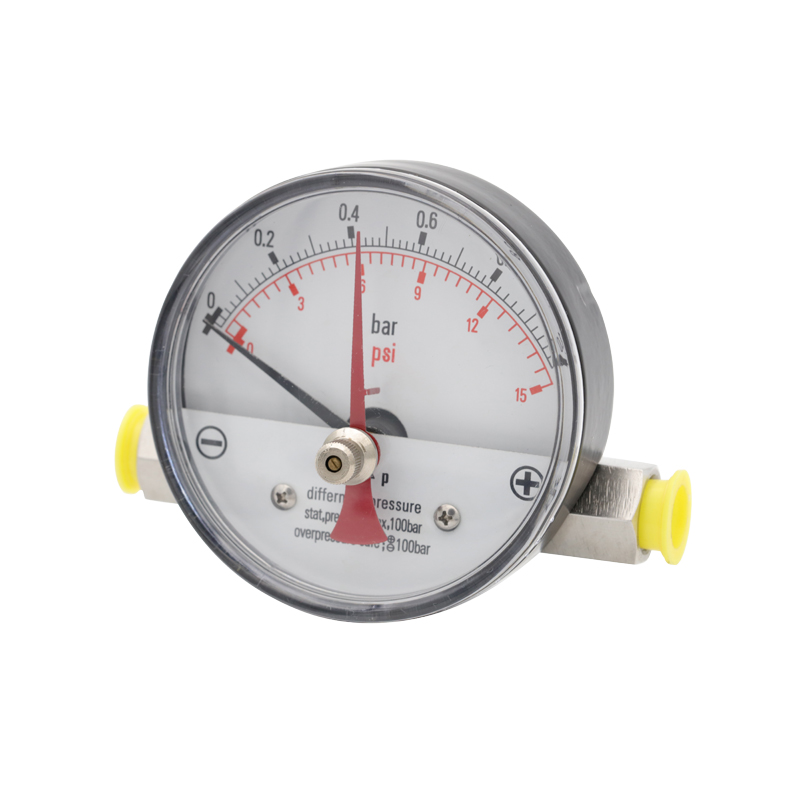
Aug . 13, 2024 20:09 Back to list
Exploring Various Types and Manufacturers of Differential Pressure Gauges in Industrial Applications
Types of Differential Pressure Gauges A Comprehensive Overview
Differential pressure gauges are essential instruments used in various industries to measure the difference in pressure between two points in a system. These gauges play a crucial role in process control, filtration monitoring, and flow measurement, allowing operators to maintain optimal performance and safety in their systems. Moreover, different manufacturers offer a range of differential pressure gauges, each tailored to specific applications and environments. This article explores the various types of differential pressure gauges and highlights the key features provided by leading manufacturers.
1. Mechanical Differential Pressure Gauges
Mechanical differential pressure gauges are the traditional type of gauges, utilizing a mechanical movement to provide readings. These gauges typically use a Bourdon tube or diaphragm to measure pressure differences. The main advantage of mechanical gauges is their simplicity and durability, making them ideal for harsh environments. Manufacturers often offer these gauges in various materials such as stainless steel or brass to withstand corrosive substances and extreme temperatures. Although mechanical gauges are reliable, they might not provide the level of precision required for some applications.
2. Electronic Differential Pressure Gauges
Electronic differential pressure gauges utilize advanced technology to deliver accurate and real-time readings. These gauges often employ a capacitive or piezoresistive sensor to detect pressure differences, which are then converted into an electrical signal. Electronic gauges are known for their high precision and the ability to integrate with digital monitoring systems. Many manufacturers incorporate features such as data logging, remote monitoring, and alarm systems, which enhance their usability in modern industrial applications. While these gauges tend to be more expensive than mechanical versions, their capabilities often justify the investment.
3. Differential Pressure Transmitters
types of differential pressure gauges manufacturers

Differential pressure transmitters offer a more sophisticated solution for measuring pressure differentials, especially in complex systems. These devices not only measure the pressure difference but also convert the measured values into standard signals (usually 4-20 mA or digital signals) that can be easily transmitted to control systems and displays. This feature makes them highly suitable for process control and automation. Leading manufacturers often design these transmitters for compatibility with various control systems, ensuring seamless integration into existing setups. Furthermore, many differential pressure transmitters come with diagnostic features that enhance maintenance and troubleshooting efficiency.
4. Low-Pressure Differential Gauges
Low-pressure differential gauges are specifically designed for applications where pressure differentials are minimal, such as in HVAC systems and cleanroom environments. These gauges provide accurate measurements in the lower pressure range and are often constructed with sensitive elements to detect slight changes in pressure. Manufacturers focus on optimizing the sensitivity and accuracy of these gauges to cater to niche applications. Additionally, many modern designs include easy-to-read displays and simple installation processes.
5. Differential Manometers
Differential manometers are another type of differential pressure gauge, utilizing fluid columns (like water or mercury) to measure pressure differences. This type of gauge is highly effective for low-pressure applications and provides a visual representation of pressure differences. Manufacturers design these manometers with varying scales and materials to suit specific applications. While they are less common in industrial settings, they are still valued in laboratory and educational environments for their straightforward design and principles of fluid mechanics.
In conclusion, differential pressure gauges are vital tools across numerous industries, with diverse types offered by various manufacturers to meet specific needs. From mechanical gauges to advanced electronic transmitters, each type offers unique benefits suitable for different applications. The choice of gauge ultimately depends on factors such as required accuracy, environmental conditions, and integration needs, making it essential for operators to understand their options to achieve optimal results in their operations.
-
High-Precision 5 Valve Manifold Differential Pressure Gauge Suppliers
NewsApr.29,2025
-
High-Precision Diaphragm Vacuum Pressure Gauges Manufacturers & Quotes
NewsApr.29,2025
-
Omega Differential Pressure Gauges High Accuracy & Durability
NewsApr.28,2025
-
Low Pressure Differential Pressure Gauges Precision Solutions & Quotes
NewsApr.28,2025
-
Digital Diaphragm Pressure Gaauge Precision Measurement & OEM Quotes
NewsApr.28,2025
-
Differential Pressure Gauge China Price High-Accuracy & Best Quotes
NewsApr.28,2025
